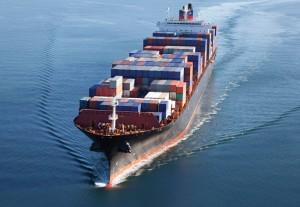Do you have Less-than-Container Load (LCL) shipments coming in from the same port several times a month?
If so, you are not alone. Many companies face this same problem. Some companies feel they don’t have the time or resources to make a change. Other companies don’t even realize this problem exists. Often times, arrangements are made by different locations, employees, buyers, etc, and they do not realize the overlap. And the cycle continues because this is “the way it’s always been done.”

I was once sitting in the office of a Logistics manager at a medium-size company talking about their supply chain, when he admitted they had 18 different LCL shipments arriving on the same ship later that week. They had a total of 86 CBMs from eight different vendors coming in LCL that could have been consolidated into two full containers and that would have resulted in huge cost savings.
So where are the pitfalls?
Purchase orders handled by multiple vendors – When you have multiple buyers, multiple people placing individual purchase orders, and no one monitoring the purchase order process, this causes overlap in everyone’s efforts. PO Management is non-existent.
One employee wearing too many hats – When you have a logistics manager who has too many responsibilities, it takes away from the time he can devote to solving this issue. This manager may get the initial pricing and ocean contracts, but this person has no time to devote to solve the problem. They only engage when an emergency arises.
No tracking mechanism in place – When there is no system in place to track shipments, product reports or develop metrics on previous history, there is a lot of time wasted on figuring out where a shipment is, or why it did not arrive where and when it was supposed to. There is also no historical data that can be analyzed in order to make improvements for the future.
By consolidating all of your shipments with one consolidator that has the right technology, you can increase visibility, reduce costs and be able to have better meet customer demand.
Benefits of Consolidating Shipments
There are multiple benefits to consolidating your shipments overseas.
1) Reduce Transportation Costs – Just as many companies combine domestic shipments in the US into a truckload, the same holds true for consolidating container shipments at the point of origin. You are also reducing shipments by increasing the amount of product you ship within one full container.
2) Reduced Labor Cost – Much of the work that is performed in the US to consolidate shipments can be done overseas for a much lower labor cost. You can accomplish the same for less.
3) More control – By having a consolidator who knows the lay of the land, you have better control over the local vendors. The consolidator can act as your eyes and ears in country.
4) Become Demand Driven – By maintaining fewer inventories in the domestic distribution center and keeping it at a consolidator overseas helps you better meet supply based on the demand from the consumer. This provides increased flexibility.
5) Sustainability Efforts – By consolidating shipments overseas, you are reducing the number of times you ship. Not only does this reduce costs, but it also reduces a company’s supply chain carbon footprint.
So by consolidating multiple LCL shipments into a single container, a company can get full container rate, not have to pay deconsolidation charges or extra trucking fees, and save on customs clearance. A good 3PL with Asian freight consolidation capabilities will be able to solve all of these issues.
To learn more about how you can benefit from consolidating and performing more logistics functions in Asia, download this article called “Optimizing the Supply Chain Where ‘East Meets West’”.


